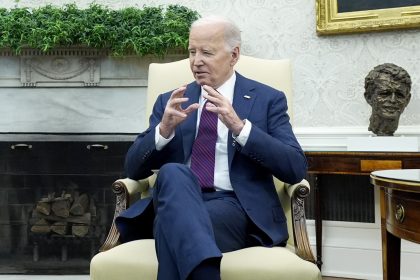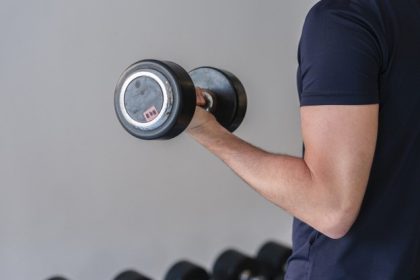German Ambassador Details Her Country’s Response to Coronavirus

WASHINGTON – H.E. Emily Haber, Ambassador of Germany to the U.S. claimed the German response to confronting the coronavirus epidemic on the health front was not that different from other European Union countries, but that Germany was able to better prepare because they were not the first country in Europe to experience the pandemic, and “saw and could analyze developments elsewhere.”
“We basically did what you have done — quarantining, isolating, mitigating risks through containment, and testing,” Haber told participants of a virtual meeting hosted by the Meridian International Center on Wednesday afternoon.
Germany’s infection rate numbered over 103,000 at the time of the discussion, fourth highest in Europe after Italy, Spain, and France, but with the third-highest recovery rate of countries around the world.
Haber credits the lower mortality rate to a “headstart,” both in terms of severely at-risk cases and in developing a concrete strategy to handle the health crisis once it reached pandemic proportions.
“There are two aspects which make our case-specific,” she said. “[Our first cases] were young and not greatly at risk, so their symptoms were milder and the mortality rate was lower.” As the situation proceeded, and more elderly and at-risk were infected, the country had taken advantage of the time to ramp up their response without overwhelming the health care system. Even now, she says, Germany has only 40% occupation of intensive care units.
“Second, before the World Health Organization concluded [that COVID-19] could be transmitted to humans, German scientists developed a test for the genetic code of COVID-19, so we could start comprehensive testing at a very early stage.” Rigorous testing allowed Germany to prepare for peaks with a very intense network of small labs across the country that could take part in the general effort.
Perhaps not so easily handled will be the European economic response to the coronavirus crisis. Germany has vocalized hesitation, if not outright opposition, to the European Union’s proposed ‘Corona bonds,’ a new debt instrument that would combine securities from different member countries. Germany fears that debt mutualization may not be the best monetary policy for those countries with stronger economies, and rejects giving too much fiscal sovereignty to European Union institutions.
“I find that reporting and perceptions in the U.S. are entirely focused on Corona bonds,” says Haber, who wishes more attention could be placed on existing structures, including the European Stability Mechanism, the region’s already established crisis fund.
The European Central Bank has already taken what the Ambassador calls “huge steps forward,” and made available a €750 billion stimulus package with liquidity for financing operations throughout 2020. This package loosened roles of the stability pact and added flexibility in budgetary instruments, “some of which was unthinkable in the crisis of 2008,” according to Haber.
“[Economic recovery] will not be fraught with the conditionality of 2008. This is a different crisis and that’s why the rules of 2008 cannot comply.”
In almost every other way, Haber says her country is now in solidarity with others in the E.U. Germany has shared medical supplies, data, and even intensive care space with neighbor nations. But she admits that wasn’t the country’s first response.
“In the early stages, we held back materials, as other countries did as well. It’s like the plane analogy, ‘First put on your own mask and then take care of your neighbor.’ But we quickly altered that first reflex and are now in support mode… As the European Union, we are a union.”
But this spirit of cooperation may be on thin ice as it relates to German/Chinese relations.
Germany has long criticized certain Chinese business practices, but Haber says now is the time to tackle other specific concerns, including China’s lack of transparency that could have allowed the virus’s early proliferation.
“We supported China during their crisis and we expect the same respect [from China] for the crisis we are in right now,” said Haber.

























